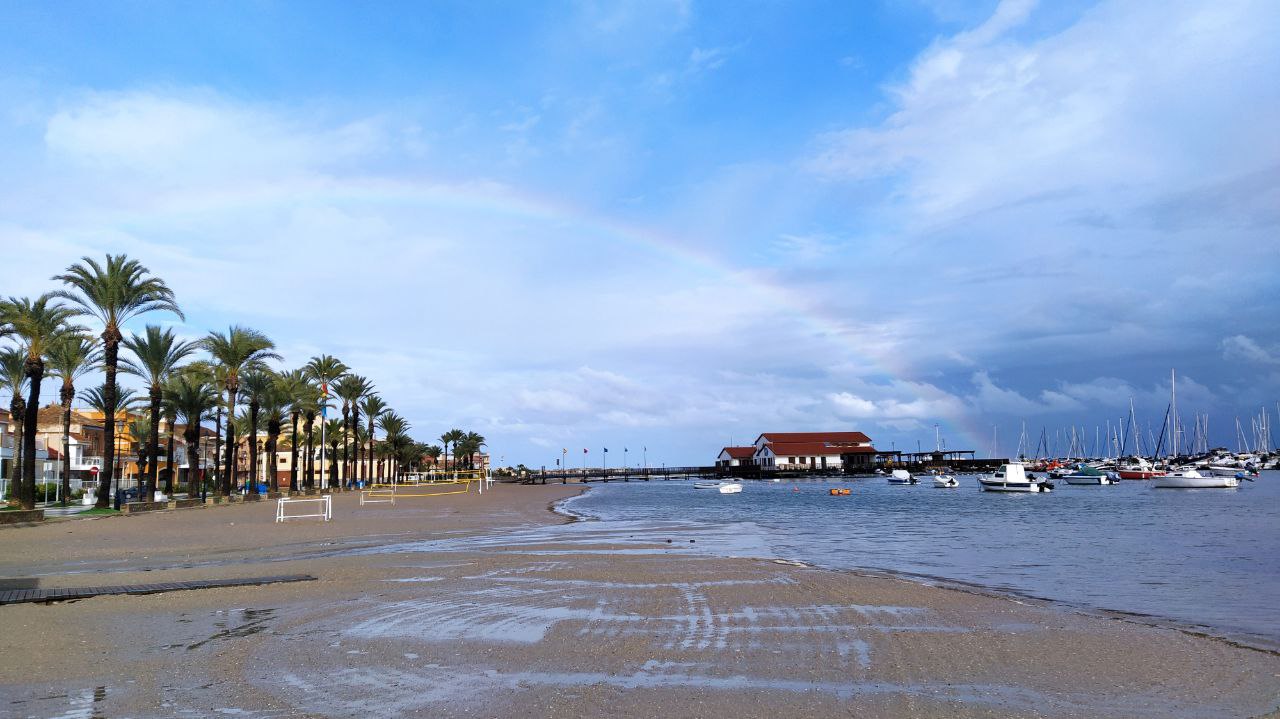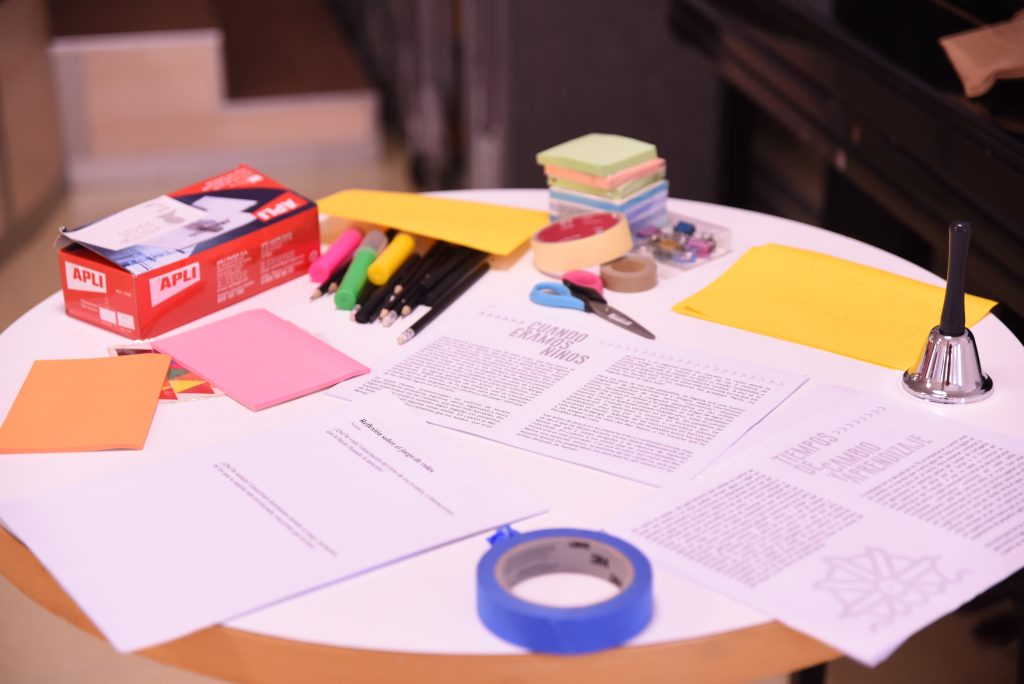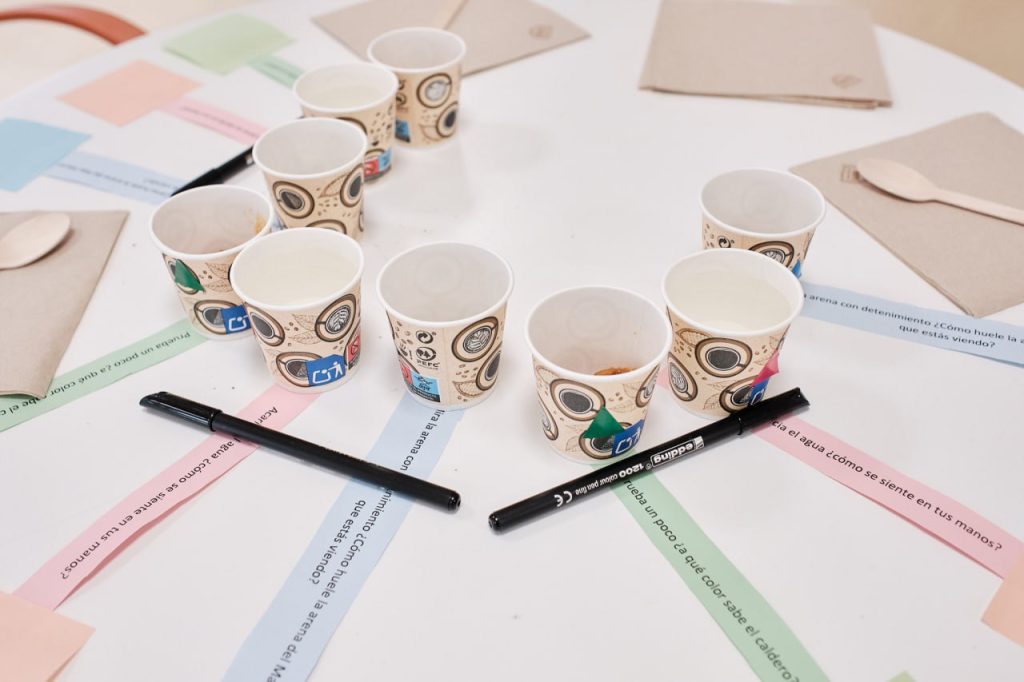On the basis of our previous research, we approached collaborative work from the point of view of collective construction of knowledge. We started a wide-ranging reflection on how to situate such a process within the land-lagoon-sea space. What could be transformative in this context? We decided to create a dialogue group including people from both the Mar Menor and the Campo de Cartagena areas who would share different experiences and positions regarding the lagoon crisis.<
We invited 18 of those people, directly or indirectly connected to the territory. 12 of them agreed to participate, 8 in the entire process and 6 partially. They included fishermen, farmers, philosophy and art teachers, an agricultural technician, biologists with expert knowledge of the lagoon, and some activists. No public officials or social representatives who are already visible in the media were invited because we prioritized invisibilized voices.


We suggested a one-year process involving two interviews (one at the start and another at the end) and four meetings. During the interview, we established each participant’s “constellation” of relationships in their everyday lives and with the lagoon. We also discussed their concerns, how the situation in the Mar Menor affects them, what they think about it, and what they expected from the meetings.
We learned a lot from these interviews. Even though there was a range of feelings and experiences regarding the lagoon, those most widely shared were sorrow for their loss and/or feeling blamed as guilty for the crisis. We also found a high level of mistrust towards the public administrations because of their inaction and towards social movements because “now everything is politicised”. Moreover, we noted that there is no common idea of what a future territory that recovered the Mar Menor might look like, as well as significant discrepancies regarding the contribution of intensive agriculture to eutrophication.
These learnings allowed us to pose certain key questions to explore during the collective meetings through various participatory methods. We designed games which invited us to move in space, use our bodies and senses or play with objects related to the lagoon, but also spaces to argue, debate, and imagine as a group. We alternated dialogue with exercises that allowed people to get to know each other and build relationships.
The most important meeting was the first one insofar as its goal was to create a group, that is, making participants feel safe enough in that space so as to continue to take part in the process. We explored the question “What is my responsibility in the eutrophic crisis of the Mar Menor” through a role-playing game in which participants represented relevant actors of the Mar Menor and Campo de Cartagena such as public administration, the fishermen’s guild, social movements, agricultural organizations, and migrant workers.


In the second meeting we discussed the causes of and solutions for a fictitious lagoon crisis event that had led to Mar Menor seahorses dwindling to a single colony. This performance game, based on imagination, was the entry point to start talking about the main discrepancies, gradually moving deeper into such controversial issues as the change of the economic model.
In our third meeting we went through the dominant narratives that seek to explain what is happening in the lagoon. We also explored the role of science and uncertainty in the polarization of these narratives. We opened the black box of strongly controversial issues such as the role of the aquifer in nitrate transport, the sustainability of current agriculture and its contribution to the eutrophication of the lagoon, the role of the urban wastewater, and the effectiveness of the solutions being implemented.
The last time we met was the most creative one. We entered a dreamlike space to dream up a hitherto unimagined future Mar Menor-Campo de Cartagena area including not only humans but other fellow species. We went over the steps taken and left a message for the future calling for individual and collective action.
To close this exciting journey, we talked again with each participant in order to reflect upon their learnings and changes in their constellations throughout this whole process.<


14/06/23 Interview in the “El punto azul” section of the Spanish National Radio show “Las tardes”, with Patricia Fernández de Lis (in Spanish).
https://www.rtve.es/play/audios/las-tardes-de-rne/primera-hora-14-06-23/6914082/
![Shared Dialogues [Diálogos compartidos]](https://www.shareddialogues.org/wp-content/uploads/2023/08/Logo-SDDC.jpg)